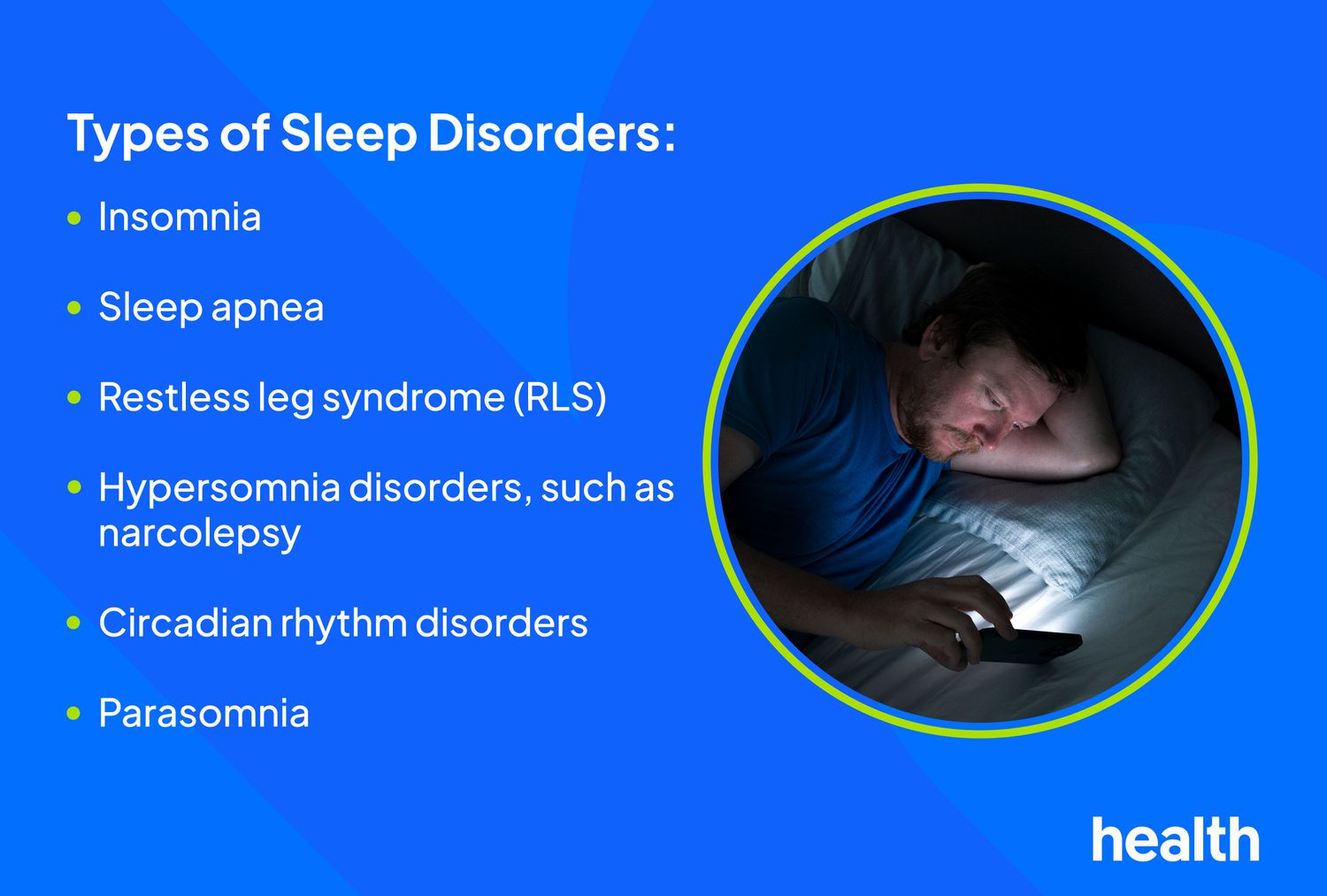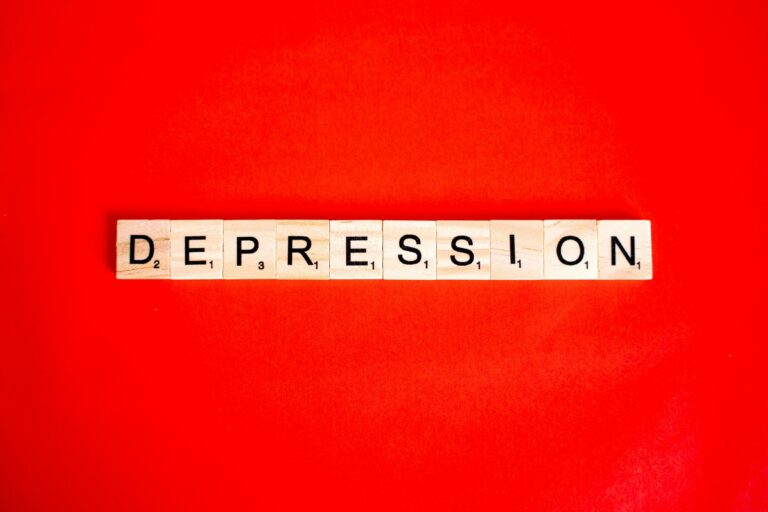Understanding Sleep Disorders: A Comprehensive Approach for Restful Nights

Are you constantly struggling to get a good night’s sleep? Is your daily life being affected by sleep disorders such as insomnia or sleep apnea? You’re not alone. Today’s fast-paced lifestyle has contributed to an increase in sleep disorders, which can have serious health consequences if left untreated. That’s where Vector Sleep Clinic comes in. Conveniently located in the heart of Rego Park and easily accessible from all five boroughs, we understand the importance of uninterrupted sleep and have a comprehensive approach to help you achieve just that. With licensed and insured professionals, we offer trustworthy and reliable care for a wide range of sleep disorders. Don’t let a sleep disorder compromise your health and well-being – let Vector Sleep Clinic help you on your journey towards restful nights and rejuvenation.
Understanding Sleep Disorders
Sleep disorders have become increasingly common due to the fast-paced life that many individuals lead. This relentless lifestyle often negatively impacts sleep, leading to various health issues. It is crucial to be aware of the common sleep disorders and potential health problems associated with them in order to take control of your sleep health and overall well-being.
The impact of fast-paced life on sleep
In today’s fast-paced world, it can be challenging to prioritize and maintain a healthy sleep routine. The demands of work, family, and social life often leave little time for quality rest. This lack of time, combined with the constant stimulation from technology and other distractions, can significantly disrupt the natural sleep-wake cycle.
The fast-paced life we lead often leads to chronic sleep deprivation, which not only affects our energy levels and cognitive function but also increases the risk of developing sleep disorders. It is essential to understand the impact of a fast-paced life on sleep in order to make necessary changes and improve our overall sleep quality.
Common sleep disorders
There are numerous sleep disorders that individuals may experience. Some of the most common include insomnia, sleep apnea, Restless Leg Syndrome, hypopnea, narcolepsy, night terrors, sleepwalking, shift work sleep disorder, circadian rhythm disorders, and parasomnias. Each of these disorders has its unique symptoms and potential consequences if left untreated.
Potential health issues related to sleep disorders
Sleep disorders can have a significant impact on our physical and mental health. When the body does not receive adequate restorative sleep, it can lead to serious health issues such as heart attacks, strokes, high blood pressure, and obesity. Furthermore, untreated sleep disorders can also result in impaired cognitive function, increased risk of accidents, problems with concentration and memory, and even relationship difficulties.
It is important to address sleep disorders promptly, as they can have detrimental effects on our overall health and well-being. Seeking professional help and considering a comprehensive sleep study can significantly improve your sleep quality and reduce the risk of associated health problems.
Why Should You Consider Completing a Sleep Study?
Diagnosing sleep disorders is crucial for several reasons. It allows healthcare professionals to create an accurate treatment plan tailored specifically to your needs, reducing the risks associated with untreated sleep disorders. Here are some reasons why completing a sleep study is important:
The importance of diagnosing sleep disorders
Without a proper diagnosis, it is difficult to determine the cause of your sleep problems and identify the most effective treatment options. A sleep study can provide invaluable information about your sleep patterns, breathing patterns, brain activity, and other physiological markers, helping healthcare professionals make an accurate diagnosis.
The risks of untreated sleep disorders
Untreated sleep disorders can have severe consequences for your health and well-being. They can increase the risk of developing serious conditions such as heart disease, obesity, diabetes, and depression. Furthermore, untreated sleep disorders can also lead to accidents and impaired cognitive function, negatively affecting your overall quality of life.
Potential consequences of untreated sleep disorders
If left untreated, sleep disorders can have a significant impact on various aspects of your life, including your relationships, work performance, and overall mental and physical health. Sleep deprivation can impair your ability to concentrate, make decisions, and handle stress effectively. It can also lead to mood swings, irritability, and decreased productivity.
Considering a comprehensive sleep study can help identify and address any underlying sleep disorders, allowing you to take control of your sleep health and improve your overall well-being.
Types of Sleep Disorders
Understanding the different types of sleep disorders is key to identifying any issues you may be experiencing. Here are some of the most common sleep disorders:
Insomnia
Insomnia is characterized by difficulty falling asleep, staying asleep, or both. It can be caused by various factors, including stress, anxiety, certain medications, or underlying medical conditions.
Sleep apnea
Sleep apnea is a condition in which the airway becomes partially or completely blocked during sleep, leading to pauses in breathing. This can result in loud snoring, gasping or choking sounds, and excessive daytime sleepiness.
Restless leg syndrome
Restless leg syndrome is characterized by an irresistible urge to move the legs, often accompanied by uncomfortable sensations. This condition can disrupt sleep, making it difficult to achieve restful nights.
Hypopnea
Hypopnea is a sleep-related breathing disorder in which airflow is partially blocked, leading to shallow or slow breathing patterns. It can result in decreased oxygen levels and fragmented sleep.
Narcolepsy
Narcolepsy is a neurological disorder that affects the brain’s ability to regulate sleep-wake cycles. It causes excessive daytime sleepiness and can lead to sudden episodes of muscle weakness or loss of muscle control.
Night terrors
Night terrors are sleep disturbances characterized by intense fear or terror during sleep. They often occur in children and can cause individuals to wake up abruptly, feeling extremely frightened.
Sleepwalking
Sleepwalking, also known as somnambulism, is a sleep disorder in which a person performs complex activities while asleep, such as walking, talking, or eating. Sleepwalkers are not aware of their actions and typically have no memory of the events.
Shift work sleep disorder
Shift work sleep disorder occurs when an individual’s work schedule conflicts with their natural sleep-wake cycle. This can lead to difficulty falling asleep, staying asleep, and feeling fully rested during normal waking hours.
Circadian rhythm disorders
Circadian rhythm disorders refer to disruptions in the body’s internal clock, causing sleep-wake cycles to be out of sync with the external environment. This can lead to difficulties falling asleep and waking up at desired times.
Parasomnias
Parasomnias are abnormal behaviors or experiences that occur during sleep, such as sleep talking, sleep eating, or nightmares. They can disrupt sleep and cause daytime fatigue and impairment.
Vector Sleep Clinic: Your Partner in Sleep Health
When it comes to addressing sleep disorders, choosing the right sleep clinic is crucial. Vector Sleep Clinic is a trusted partner in sleep health, offering comprehensive services to help you achieve restful nights and improve your overall well-being.
Convenient location in Rego Park
Located in the heart of Rego Park, our clinic is easily accessible for residents in the area. No matter where you are in the boroughs, our convenient location ensures that you can receive the care you need without facing long commutes.
Accessibility from all 5 boroughs
We understand that accessibility is essential when seeking healthcare services. That is why our clinic is easily accessible from all five boroughs of New York City. Whether you reside in Manhattan, Brooklyn, Queens, the Bronx, or Staten Island, you can conveniently reach our clinic to receive the support you deserve.
Licensed and insured
At Vector Sleep Clinic, your safety and well-being are our top priorities. We are fully licensed and insured, ensuring that you receive high-quality care from qualified professionals.
Reliable and trustworthy
When it comes to your sleep health, you need a clinic you can trust. At Vector Sleep Clinic, we strive to provide reliable and trustworthy services. Our team of experienced sleep specialists is dedicated to helping you achieve restful nights and improving your overall sleep quality.
Diagnosing Sleep Disorders
Diagnosing sleep disorders is a crucial step towards improving sleep quality and overall well-being. It is important to seek professional help for an accurate diagnosis and to determine the best course of treatment. Here’s why professional diagnosis is essential and an overview of different methods for diagnosing sleep disorders.
The importance of professional diagnosis
While self-diagnosis may seem tempting, it is not recommended when it comes to sleep disorders. Professional diagnosis by a qualified sleep specialist is crucial for accurately identifying the underlying causes of your sleep problems. Sleep disorders can have various underlying factors, and a professional diagnosis is necessary to pinpoint them and develop an effective treatment plan.
Different methods of diagnosing sleep disorders
There are various methods used to diagnose sleep disorders, depending on the specific symptoms and suspected conditions. These methods may include:
-
Sleep history and physical examination: Discussing your symptoms, medical history, and sleep patterns with a healthcare professional can provide valuable insights into the potential causes of your sleep problems.
-
Sleep diary: Keeping a sleep diary allows you to track your sleep patterns, bedtime routines, and any factors that may be affecting your sleep. This information can assist healthcare professionals in understanding your sleep habits and identifying potential triggers or patterns.
-
Polysomnography: Polysomnography, also known as a sleep study, involves monitoring your brain activity, eye movements, heart rate, breathing patterns, and other physiological markers during sleep. This comprehensive test helps identify sleep disorders such as sleep apnea, narcolepsy, and restless leg syndrome.
-
Multiple sleep latency test: This daytime sleep study measures how quickly you fall asleep during daytime naps. It is commonly used to diagnose narcolepsy and assess the severity of excessive daytime sleepiness.
-
Actigraphy: Actigraphy involves wearing a device on your wrist that monitors your activity patterns, providing objective data on your sleep and wake cycles. This method is often used to assess circadian rhythm disorders and sleep-wake disturbances.
These diagnostic methods, along with a thorough evaluation by a sleep specialist, can help determine the underlying causes of your sleep problems and guide appropriate treatment options.
Sleep studies and their significance
Sleep studies, such as polysomnography, play a crucial role in diagnosing sleep disorders and understanding your unique sleep patterns. These studies provide comprehensive data that allow healthcare professionals to accurately diagnose specific conditions and develop personalized treatment plans.
By undergoing a sleep study, you can gain valuable insights into your sleep quality, breathing patterns, and overall physiological markers. This information is vital for understanding the severity and underlying causes of your sleep disorder, leading to more effective treatment strategies and improved sleep health.
Treatment Options for Sleep Disorders
Once a sleep disorder has been diagnosed, various treatment options can help improve sleep quality and alleviate symptoms. The appropriate treatment plan will depend on the specific sleep disorder and its underlying causes. Here are some common treatment options for sleep disorders:
Lifestyle changes
In many cases, making lifestyle changes can significantly improve sleep quality. This may include adopting a regular sleep schedule, creating a comfortable sleep environment, practicing relaxation techniques, reducing exposure to stimulants, and managing stress and anxiety.
Medications
In some instances, medications may be prescribed to address specific sleep disorders. Sleep aids, such as hypnotics or sedatives, may be used on a short-term basis for insomnia. Medications that help regulate sleep-wake cycles, such as stimulants for narcolepsy or restless leg syndrome, may also be prescribed.
CPAP therapy
Continuous Positive Airway Pressure (CPAP) therapy is a common treatment for obstructive sleep apnea. It involves wearing a mask connected to a machine that delivers a continuous stream of pressurized air to keep the airway open during sleep.
Oral appliances
Oral appliances, such as mandibular advancement devices, can be used to treat sleep apnea by positioning the jaw forward, helping to keep the airway open. These appliances are custom-made by dental professionals and can provide relief for those who cannot tolerate CPAP therapy.
Surgical interventions
Surgical interventions may be recommended for certain sleep disorders, particularly those caused by anatomical abnormalities or nasal obstruction. Procedures such as tonsillectomy, adenoidectomy, or nasal surgery can help improve airflow and alleviate sleep apnea symptoms.
Behavioral therapy
Behavioral therapy, including cognitive-behavioral therapy for insomnia (CBT-I), focuses on addressing the underlying thoughts, behaviors, and habits that contribute to sleep problems. This therapy can help individuals develop healthy sleep patterns and improve overall sleep quality.
Alternative therapies
Alternative therapies, such as acupuncture, aromatherapy, and relaxation techniques, may also be used to complement conventional treatments for sleep disorders. These therapies aim to promote relaxation, reduce stress, and improve sleep quality.
It is important to consult with a healthcare professional or sleep specialist to determine the most suitable treatment options for your specific sleep disorder. They will consider your individual needs, medical history, and the severity of your condition to develop a comprehensive treatment plan.
Improving Sleep Quality: Tips and Strategies
In addition to medical interventions, adopting healthy sleep habits and practicing good sleep hygiene can significantly improve sleep quality. Here are some tips and strategies to help you achieve restful nights:
Establishing a consistent sleep schedule
Maintaining a regular sleep schedule, even on weekends, helps regulate your body’s internal clock and promotes better sleep. Aim for a consistent bedtime and wake-up time that allows for adequate sleep duration.
Creating a sleep-friendly environment
Ensure that your sleep environment is comfortable, quiet, and dark. Use blackout curtains or eye masks to block out any light that may interfere with your sleep. Keep the room cool and invest in a supportive mattress and pillows for optimal comfort.
Managing stress and anxiety
Stress and anxiety can significantly impact sleep quality. Implement stress management techniques such as deep breathing exercises, meditation, or journaling before bed to promote relaxation and calmness.
Avoiding stimulants before bed
Caffeine, nicotine, and alcohol can disrupt sleep patterns and make it difficult to fall asleep or stay asleep. Avoid consuming these substances, especially in the hours leading up to bedtime.
Practicing relaxation techniques
Engage in relaxation techniques such as progressive muscle relaxation, guided imagery, or a warm bath before bed. These activities can help your body and mind unwind, preparing you for a restful night’s sleep.
Exercising regularly
Regular physical activity can improve sleep quality by reducing stress levels and promoting the release of endorphins, which are known to improve mood and sleep. However, avoid intense exercise close to bedtime, as it may energize you and make it harder to fall asleep.
Maintaining a healthy diet
A balanced diet can positively impact sleep quality. Avoid heavy or spicy meals close to bedtime, as they can cause indigestion or discomfort. Opt for lighter, sleep-friendly snacks if you need something before bed.
By implementing these simple tips and strategies into your routine, you can significantly enhance your sleep quality and overall well-being.
The Role of Sleep in Overall Health and Productivity
Quality sleep plays a crucial role in maintaining good overall health and promoting productivity in various aspects of life. Understanding the importance of sleep and its impact on physical and mental well-being is key to prioritizing restful nights.
The importance of quality sleep
Quality sleep is essential for maintaining optimal physical health, mental well-being, and cognitive function. It allows the body to repair and recharge, supporting various bodily functions, including immune system function, hormone regulation, and memory consolidation.
Effects of sleep deprivation
Sleep deprivation can have detrimental effects on both physical and mental health. It can lead to impaired cognitive function, decreased alertness and attention, increased risk of accidents, and decreased immune system function. Prolonged sleep deprivation has also been associated with an increased risk of chronic health conditions, such as obesity, diabetes, and cardiovascular disease.
Relationship between sleep and physical health
Adequate sleep plays a critical role in maintaining and optimizing physical health. It supports cardiovascular health, helps regulate blood pressure, promotes healthy weight management, and reduces the risk of chronic diseases. Lack of sleep, on the other hand, can disrupt these processes and increase the risk of developing various health conditions.
Impact of sleep on mental health
Sleep and mental health are intricately linked. Sufficient sleep is essential for emotional well-being, regulation of mood, and overall mental health. Chronic sleep deprivation has been associated with an increased risk of developing mental health disorders such as anxiety and depression.
Sleep’s role in work performance and productivity
Sleep quality directly affects work performance and productivity. Sufficient sleep promotes cognitive function, memory retention, problem-solving abilities, and creativity. On the other hand, inadequate sleep can lead to difficulties with concentration, decision-making, and overall productivity.
It is crucial to prioritize quality sleep in order to reap the numerous benefits it offers for overall health, mental well-being, and productivity.
Seeking Professional Help for Sleep Disorders
Recognizing the signs of sleep disorders and knowing when to seek professional help is key to addressing any issues you may be experiencing. Here are some factors to consider:
Recognizing the signs of sleep disorders
Common signs of sleep disorders include difficulty falling asleep or staying asleep, excessive daytime sleepiness, loud snoring, sudden awakenings with a sensation of choking or gasping, morning headaches, difficulty concentrating, and irritability. If you experience any of these symptoms regularly, it may be a sign that you are dealing with a sleep disorder.
When to consult a sleep specialist
If you suspect that you have a sleep disorder or are experiencing persistent sleep-related difficulties, it is important to consult a sleep specialist. They can conduct a thorough evaluation, perform necessary diagnostic tests, and develop a personalized treatment plan based on your specific needs.
Choosing the right sleep clinic
When seeking professional help for sleep disorders, it is important to choose a reputable sleep clinic. Consider factors such as the clinic’s experience, expertise of the sleep specialists, range of diagnostic and treatment options available, and feedback from previous patients. Vector Sleep Clinic, for example, is a trusted provider of comprehensive sleep services, offering expert care and personalized treatment options.
Conclusion
Taking control of your sleep health is a vital step towards improving your overall well-being and enjoying restful nights. Understanding the impact of fast-paced living on sleep, recognizing common sleep disorders, and being aware of the potential health issues related to untreated sleep disorders are essential in this comprehensive approach.
Completing a sleep study, such as the one offered at Vector Sleep Clinic, can provide valuable insights into your sleep patterns and help identify any underlying sleep disorders. Prompt diagnosis and treatment of sleep disorders are crucial for minimizing the potential risks and consequences associated with untreated conditions.
Various treatment options, including lifestyle changes, medications, therapy, and alternative therapies, can be effective in improving sleep quality and managing sleep disorders. Additionally, adopting good sleep hygiene practices and implementing stress management techniques can further enhance your sleep health.
Understanding the role of quality sleep in overall health, mental well-being, and productivity is key to prioritizing restful nights. By seeking professional help when needed and choosing a reputable sleep clinic, you can take proactive steps towards better sleep and improved overall well-being.
Embrace a comprehensive approach to sleep health, and unlock the power of restful nights for a healthier and more fulfilling life.






